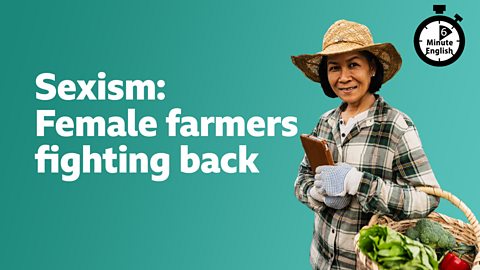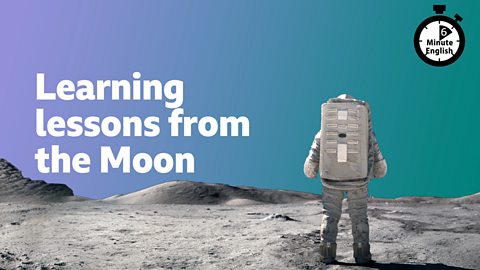6 Minute English
Intermediate level
Heatwaves: can we adapt?
Episode 230824 / 24 Aug 2023

(Image: Getty)
____________________________________________________________________________
Learn more about the environment
____________________________________________________________________________
Introduction
Many cities are getting hotter and hotter. This can cause many problems for the people who live in them. What can we do to make heatwaves more bearable?
This week's question
People in India use 'jaali' to keep their homes cool, but what is it? Is it:
a) a tall house designed to reduce sunlight?
b) a honeycomb pattern used in windows? or,
c) a system for spraying cool water?
Listen to the programme to hear the answer.
Vocabulary
sweat
salty water which the body passes through the skin to stay cool
ventilation
the movement of fresh air around a closed space
power cut
period of time when the supply of electricity is stopped
daily wage earners
someone who earns money on a day-to-day basis meaning that they will receive no money if they do not work
slum
poor and crowded area of a city with very bad living and housing conditions
subsidise
pay part of the cost of something
TRANSCRIPT
Note: This is not a word-for-word transcript.
Beth
Hello. This is 6 Minute English from BBC Learning English. I’m Beth.
Neil
And I’m Neil.
Beth
I have a confession to make, Neil - I love the hot weather. It's a chance to get outside, maybe get a suntan. But sometimes it gets too hot, even for me.
Neil
Yes, depending where in the world you live, you've probably noticed that it's getting hotter year after year. 2023 is the hottest year on record with heatwaves in many countries around the world, even Britain.
Beth
When it gets too hot, the human body knows how to cool down. It sweats, passing salty water called sweat through the skin to lose heat. But unlike the body, houses don't know how to keep cool. And in hot parts of the world where air conditioning is unavailable, or unaffordable, this is a real problem.
Neil
In this programme, we'll be hearing about an innovative new idea for keeping houses cool in one of the hottest countries on Earth, India. And as usual we'll be learning some useful new vocabulary as well.
Beth
But before we hear more about this sweaty subject, I have a question for you, Neil. Living in cities where summer temperatures regularly exceed 45 degrees Celsius, Indians have been finding clever ways to keep their houses cool for over five thousand years. One of them is called ‘jaali’, but what exactly is it? Is ‘jaali’:
a) a tall house designed to reduce sunlight?
b) a honeycomb pattern used in windows? or,
c) a system for spraying cool water?
Neil
Hmmm, I’ll guess jaali is, b) a honeycomb window pattern.
Beth
OK, Neil, we’ll find out the answer later in the programme. In May 2022, the temperature in Uttar Pradesh, the largest state in north India, reached 49.2 degrees Celsius. Roshni Diwakar is a consultant for the Mahila Housing Trust, an NGO helping poor Indian women to heat-proof their houses. These women often work from home while their husbands are out in the heat working on construction sites. Here Roshni describes a typical house to BBC World Service programme, People Fixing The World:
Roshni Diwakar
They live in a small one-bedroom house with no windows, no natural ventilation. They don't necessarily have illegal electric connections, and even if they do, they don't have electricity 24 hours a day - there are power cuts, especially in the summer months. Many of them have tin roofs which of course will really heat up. Health gets affected, because their health is affected their livelihood gets affected, because they’re daily wage earners - if you don't work you don't earn.
Neil
Many of the houses have no window so there is no ventilation - the movement of fresh air around a space. Air conditioning needs electricity which most families can't afford, and even those who can experience frequent power cuts – periods when the supply of electricity is stopped.
Beth
In this heat, sickness is common. Often the men can't work, which is a problem because they are the daily wage earners - someone who earns money on a day-to-day basis meaning that they will receive no money if they cannot work. Families spend most of the day outside in the street, and at night it's still too hot to sleep, even on the roof.
Neil
But fortunately, Roshni has been working on a clever cool roof solution – white paint. Painting reflective anti-solar white paint on the roof can reduce room temperatures by up to 4 degrees. It may not sound like much, but it makes a big difference and allows families to work, cook, and even sleep inside. Here’s Roshni again, talking with BBC World Service programme, People Fixing The World:
Roshni Diwakar
This has honestly been the most successful of the technologies that they've adopted. We started off by doing it in the city of Ahmedabad, but we've done it across other cities - we've done it in Bangalore, we've done it in Jodhpur. In fact in Jodhpur we've done it in an entire slum.
Myra Anubi
Mahila Housing Trust gets external funding and uses it to subsidise the cost of the paint meaning communities only end up paying 15 to 20% of the actual price.
Beth
Roshni’s housing trust has been painting houses in cities all over India. In Jodhpur, a city on the edge of the Thar Desert, they painted an entire slum – a poor and crowded area of a city with very bad housing conditions.
Neil
What's more, the trust subsidises the paint meaning they pay part of the cost, so even the poorest families can afford it. It's a great example of Indians skilfully finding ways of adapting to the heat – a modern version of ‘jaali’, you could say. So, what was the answer to your question, Beth? Was my idea - that ‘jaali’ is a honeycomb pattern used in windows – correct?
Beth
It was… the correct answer! ‘Jaali’ is a honeycomb design with many small holes set into wooden or stone windows. The small holes keep out the sunlight, and cool down the air coming in.
Neil
OK, it's time to recap the vocabulary we've learned in this programme, starting with sweat - passing salty water through the skin to stay cool.
Beth
Ventilation is the movement of fresh air.
Neil
A power cut is an interruption in the supply of electricity.
Beth
A daily wage earner is a worker who earns money on a day-to-day basis.
Neil
A slum is a very poor and crowded area of a city.
Beth
And finally, if you subsidise something, you pay part of its cost. Once again our 6 minutes are up. Goodbye for now!
Neil
Bye!
Latest 6 Minute English

Sexism: Female farmers fighting back
Episode 231228 / 28 Dec 2023
How can female farmers beat rural sexism?



Invasive species: Why don't we eat them?
Episode 231207 / 07 Dec 2023
Could we eat invasive species?

What and where is Little Italy?
Episode 231130 / 30 Nov 2023
Mozzarella, ricotta, cannolis and focaccia... Where are we? Little Italy of course!

Social media and teenage health
Episode 231123 / 23 Nov 2023
What are the health risks of social media for teenagers?








Sounds that make you want to scream
Episode 230928 / 28 Sep 2023
Are there any sounds you find upsetting?




The stories behind our names
Episode 230831 / 31 Aug 2023
What do our names reveal about our culture and family history?


Are you unhappy at work?
Episode 230817 / 17 Aug 2023
Does work leave you feeling bored and exhausted?







Is it wrong to eat plants?
Episode 230629 / 29 Jun 2023
Should we treat plants with the same consideration we treat animals with?



The art of subtitling
Episode 230608 / 08 Jun 2023
Hear how subtitles can help bring TV and movies to life

Ecotourism: good or bad?
Episode 230601 / 01 Jun 2023
We discuss the growing popularity of ecotourism.

Can climate change cause more disease?
Episode 230525 / 25 May 2023
With warming temperatures, mosquitos are now spreading to new areas, including Europe.



Ice and the origins of life on Earth
Episode 230504 / 04 May 2023
We talk about an essential element for life to thrive.

Women in politics
Episode 230427 / 12 Apr 2023
We discuss some of the reasons why women make up only 26% of the world's politicians.

What's the point of museums?
Episode 230420 / 20 Apr 2023
We discuss the role of museums in the 21st century and the items taken from different countries.

How culture affects sadness
Episode 230413 / 11 Apr 2023
What ways do you think culture can influence sadness?

Would you eat a Kalette?
Episode 230406 / 06 Apr 2023
Hear about a new kind of vegetable making an entrance in British kitchens

Do you get jealous easily?
Episode 230330 / 06 Mar 2023
Let's talk about the ugly green-eyed monster


Food and mood
Episode 230316 / 16 Mar 2023
We look at the link between what you eat and how you feel.

How to talk to a climate denier
Episode 230309 / 09 Mar 2023
The dos and don'ts of trying to discuss science with someone who doesn't believe in it

Losing your mother tongue
Episode 230302 / 02 Mar 2023
Hear the story of a woman who replaced her native Czech for English.

The health benefits of apples
Episode 230223 / 23 Feb 2023
Could 'an apple a day keep the doctor away'?


Doomscrolling: Why do we do it?
Episode 230209 / 27 Jan 2023
What is doomscrolling and why are we attracted to bad news? Listen to find out!

Exercise for the lazy
Episode 230202 / 22 Jan 2023
What's the least amount of exercise you should do to stay healthy?

Can AI have a mind of its own?
Episode 230126 / 26 Jan 2023
Hear about the software engineer who became 'friends' with his computer

Climate change: Are there too many people?
Episode 230119 / 13 Jan 2023
Does the size of your carbon footprint depend on where in the world you were born? Listen to find out!

The hidden life of buffets
Episode 230112 / 12 Jan 2023
Neil and Sam discuss buffet meals and the history behind them.

Songwriting
Episode 230105 / 05 Jan 2023
Writing a memorable song isn't easy. So is there an art to good songwriting?







